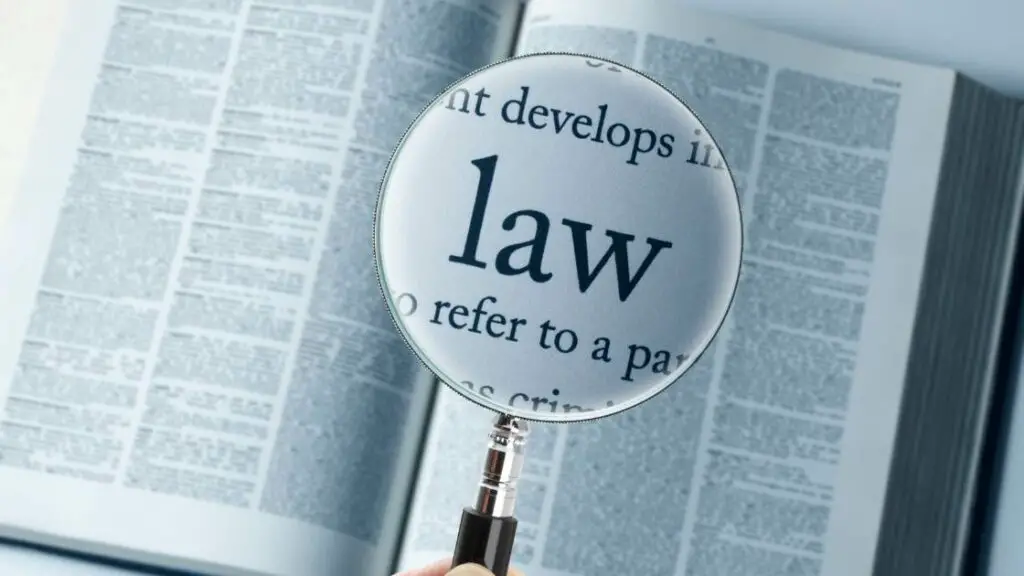If you are pregnant and wondering if you can break your lease early, you are in the right place.
In this article, I am going to cover whether it is possible to terminate your lease due to pregnancy and some options you can explore if you are in this situation.
Although we will go into the topic in more detail below, the short answer is as follows:
In general, you cannot terminate a lease early due to pregnancy unless your lease permits it or there is another factor that would permit termination under your state or local laws, such as a legally protected medical condition associated with your pregnancy, unsafe or uninhabitable living conditions, and the like.
That being said, don’t give up hope. We are going to discuss a number of options you can explore to terminate your lease early so that you can find a suitable home for your expanded family.
Let’s get into it!
The information contained in this post is for informational purposes only. It is not legal advice. You should seek the advice of a qualified legal professional before making any decisions relating to the topics covered by this article.
We may earn commissions from products and services that are purchased or recommended through our website as part of our affiliate partnerships. As an Amazon affiliate, we may earn from qualifying purchases.
Can I Break My Lease if I’m Pregnant?

As noted above, pregnancy by itself, is almost never a valid reason to terminate the lease. Getting pregnant is a decision that you have made voluntarily and the landlord should not be penalized for that choice by losing a paying tenant and incurring the time, expense and risk associated with finding a new tenant.
Of course, that doesn’t mean that there aren’t other ways to terminate your lease early. Let’s explore step-by step what some of those options are.
Check Your Lease First
Even though I just said that pregnancy is almost never, by itself, a cause for terminating the lease, you shouldn’t leave anything to chance. The first thing you should do is check your lease to see if there actually is a provision that allows you to terminate early in event of pregnancy.
It’s unlikely, but worth examining to be sure.
Check Applicable Landlord-Tenant Laws

Next, you can look at your landlord tenant laws. Most states (and even some local governments) have pretty clear laws governing the landlord-tenant relationship.
Now, I doubt you will find a clause that allows you to terminate due solely to pregnancy, but there may be other reasons for termination that apply to your situation.
Some of the more typical reasons for early termination of a lease under landlord tenant laws may be if the dwelling is uninhabitable (think serious mold issues, no running water, horrible pest infestations, and the like), you have a medical condition (debilitating mental health issues, physical disabilities, etc.), you are the victim of domestic violence or sexual harassment, or there are other unsafe or illegal conditions.
I have written articles on whether you can break your lease based on these various situations, so check out the links above to those articles if you want to learn more.
As you can imagine, state and local laws vary on whether tenants may terminate the lease based on such factors, so check out the applicable laws for you to see if your situation allows early termination (or ask a qualified lawyer or your local tenant organization to help).
I have put together a list of the landlord-tenants laws for all 50 states here.
If you prefer to have a lawyer assist you, I would try JustAnswer. They boast access to thousands of highly-rated, verified real estate lawyers whom you can connect with via their unlimited chat service.
By clicking the banner below, you can get a one week trial membership for only $5, which you can cancel at any time.

What Happens If I Break My Lease Early Without Good Reason?
If you break your lease and you have not negotiated an amicable solution with your landlord, you can face serious financial consequences.
They can include the following, depending on your lease terms and applicable laws:
- You may lose forfeit some or all of your security deposit.
- You may pay late fees.
- You may pay the rent for the remaining months of your lease even if you have already moved out.
What Happens if I Refuse to Pay the Fines?
If you refuse to pay in accordance with the terms of your lease, your landlord may file a lawsuit against you or hire a collection agency to collect the money you owe them.
This does a lot of damage to your credit score, which makes it difficult to find a new apartment. Because most rental applications will ask for a reference from your former landlord, it’s always best to be on good terms.
Talk With Your Landlord to See If You Can Work Something Out

Not all landlords are the same. Being pregnant and needing a bigger place is very understandable. Talk to your landlord about your situation and your desire to break your lease.
Of course, you should first scour your lease to see if there is anything in there that could serve as grounds for early termination. Is it a month to month lease? Does it have occupation limits that may be violated if another person is added to the unit? Is there an early termination fee that you can pay?
It doesn’t hurt to check and you may be surprised at what you find.
If your landlord is not really receptive to letting you out of the lease and your lease is pretty airtight, don’t give up hope. We are going to cover some additional options that you can explore.
Pursue Other Termination Options
One great option is to offer to find another suitable tenant for the unit at the same rent. You can offer to do all of the heavy lifting by market the property, showing it to prospective tenants, etc.
If the landlord is willing, this may not be a bad option. Of course, the landlord may not agree if the lease doesn’t permit sub-leasing, but it doesn’t hurt to ask.
Related Reading: If you want to learn more about how to break your lease early by finding a new tenant, check out my full article on the topic here.
Or you could offer to pay the landlord for the right to exit the lease. If you don’t want to shell out any money, you can suck it up and wait for the lease to end. You will need to read the lease carefully to make sure it does not “auto-renew” though (or if it does, you must remember to provide timely notice to the landlord that you don’t want to renew).
A final option you can use if all of the other ones fail is to just vacate the property.
Now you will likely be on the hook to pay the remaining rent in most cases. But in many states, the landlord will be required to mitigate their losses and will need to find a replacement tenant. Once the replacement tenant comes in and starts paying rent (assuming it’s at least the same rent as yours), you will be off the hook for the remaining rent payments.
Bear in mind that, although they are obligated to try to find a replacement tenant, they may not be able to do so quickly (or at all) if the rental market is soft. That means you will be responsible for any remaining rental payments under the lease until they can do so. That could be a lot of money if you have a long time left on your lease.
It’s definitely a gamble and has a lot of potential downsides, so you should only consider this as a last resort.
Before you pursue this final option, consider whether you have other grounds to break your lease that we haven’t covered already.
Check out my full article on how to break your lease early without penalty for more details. It includes 11 situations where you can terminate early (plus one bonus option that applies in all situations).
The Takeaway
So, can I break my lease if I’m pregnant? Yes, but you may need to explore the options I laid out above to find one that is suitable for you.
Breaking a lease is a difficult, complicated, and expensive process that could affect your record and credit score, so be careful while doing this and try to find a reasonable solution in concert with your landlord.


